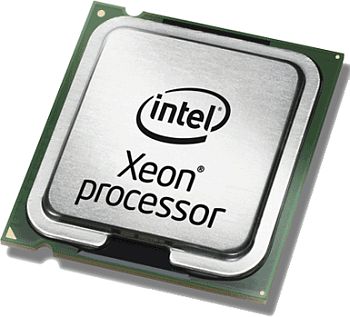Intel Shakes Up Xeon Chip Branding, Adding Skylake Into The Mix

Official change to Xeon branding sees introduction of metallic classifications to grade processor family
Chip giant Intel has announced the official rebranding of its next generation Xeon processor family (codenamed “Skylake”).
The data centre oriented Xeon processors currently have a series name – either E3, E5, and E7 – as well as a model number (a four digit number) and a version number.
But now Intel will use metallic classifications to identify specific Xeon parts, and the new branding is being referred to as the ‘Xeon Scalable Processor Family‘.
 Heavy Metal
Heavy Metal
Intel explained that it is renaming its next-generation Xeon processor family (due out in the summer) as the Intel Xeon Processor Scalable family because the new chips “represents the biggest set of data centre platform advancements in this decade”.
“The new Intel Xeon Processor Scalable family represents a major architectural leap forward in processor architecture and platform advancements, delivering workload-optimized performance for compute, network and storage,” said Intel.
It said that the Intel Xeon Processor Scalable family has been “re-architected from the ground up” and will include integrated performance accelerators such as Intel Advanced Vector Extensions 512 (Intel AVX-512) and Intel QuickAssist Technology (Intel QAT).
Other new tech included are the Intel Volume Management Device (Intel VMD), a new platform capability to manage PCIe-based (NVMe) solid state drives.
And it seems that the new Intel Xeon Processor Scalable family will offer four levels of performance and capabilities, and the tiered models will be based on metals (bronze, silver, gold and platinum) “to make the options simple and efficient to choose.”
As would be expected, bronze is the entry level chip and platinum is for the ultra-high-end lines.
So the Bronze CPUs offer entry level performance and lower clocks, whereas Silver processors are designed for low-power designs. The Gold and Platinum chips come with a number of high-end options.
“We believe the Intel Xeon Processor Scalable family – which is already being embraced by a wide range of cloud providers and leading enterprises around the world – will be a catalyst for organizations to modernise their data centres,” said Lisa Spelman, Intel’s VP and general manager of Intel Xeon products and data centre marketing.
She said that the new chips would offer much greater flexibility and choice in how data centre technologies are adopted and deployed, and also reduce complexity and the test and validation overhead.
Intel Changes
It has been a busy period for the chip firm. Earlier this week Intel patched a remote execution flaw in the chipset firmware behind millions of its workstation and server chips that remained under the radar for nine years.
That vulnerability, which had been present since 2008, could allow hackers to gain system privileges in vulnerable computer hardware rather than need to go through the operating system, thus avoiding detection.
Intel meanwhile is also spinning out is security division into the reinvigorated McAfee brand.
And last month it announced that it was retiring its popular annual developer conference.
The annual Intel Developer Forum (IDF) had been built for years as a way to help the firm get its processors into as many PCs and servers as possible.
But now as Intel broadens its reach into such areas as artificial intelligence (AI), machine learning, the internet of things (IoT), drones, self-driving cars, 5G wireless technology and wearable devices, it took the decision to axe the event.
Quiz: What do you know about Intel?